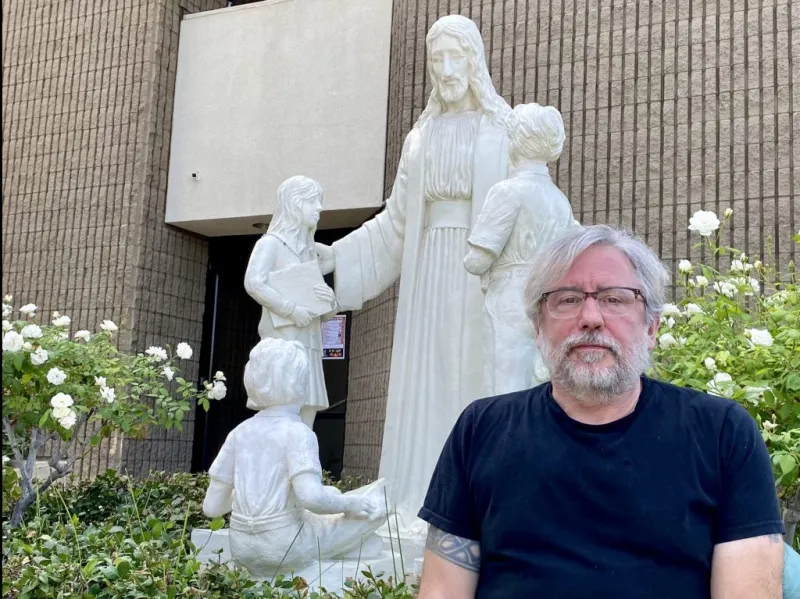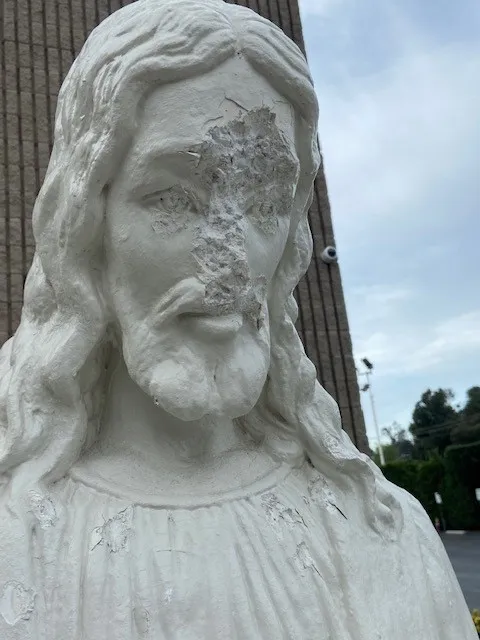
Vitoria-Gasteiz, Spain, Aug 7, 2021 / 15:00 pm (CNA).
As Spain records a high rate of suicide, a Bishop in the Basque Country on Wednesday urged that no effort be spared in addressing the crisis, “taking a stand for life.”
Bishop Juan Carlos Elizalde Espinal of Vitoria gave his reflection during Aug. 4 Solemn Vespers in honor of Our Lady of the Snows.
“There are many people, youths and adults, who decide to put an end to their existence. Don’t do it. Life is worth living. In face of the darkness, Christ is the Light,” Bishop Elizalde stressed.
In addition to the common reasons people take their own lives such as clinical depression, Spain legalized both euthansia and assisted suicide in December 2020.
The bishop called on “everyone, public institutions, companies, schools, families and the Church,” to join together to provide the necessary help to the person contemplating suicide, “who needs to know that God has a plan for him and there’s a new beginning.”
“I ask that we spare no effort to address this problem of the first order, taking a stand for life, from the first moment of conception to its natural end, alleviating pain, also taking care of the caregiver and always ensuring the dignity of all,” he continued.
On average, according to official data, every day in Spain “more than 10 people die from suicide (more than twice as many victims as from traffic accidents) and many more suffer the consequences. Suicide is one of the biggest public health problems in Europe. The estimated rate of suicide is 13.9 per 100,000 inhabitants per year.”
By comparison, Spain has seen 173.1 deaths per 100,000 from Covid-19.
Bishop Elizalde also pointed to one of the main causes of suicide in Spain, bullying.
“Bullying, which causes profound pain, is an evil that we must eradicate from schools and workplaces. We have no right to ruin anyone’s life. Bullying in schools causes serious problems,” which can even lead to “the young person ending his own life. There are many people, youths and adults, who decide to end their existence,” he said.
The Bishop of Vitoria also recalled the millions of Christians who are persecuted because of their faith, “who bear witness to the Truth,” and noted that in Spain “there are also those who intend to eliminate the millenary presence of our faith.”
“It’s nothing new, but I want to alert you to the growing intolerance towards faith in Christ in our society,” he said.
The bishop also warned of the great harm caused by a school curriculum that discards religious education, “as this new education law seems to want to do” in the drive toward secularization.
The Celaá Law, which took effect in January, marginalizes the subject of religion in schools.
For the bishop, eliminating from the curriculum the student’s free choice to take religion classes is like “an attack against one’s own culture, against the understanding of the world and against freedom,” and pointed out that “we shout to heaven when they trample on rights, but not when those rights are related to the transcendent, to the faith of a great majority of people and against the knowledge of Jesus and everything that has to do with him.”
If you value the news and views Catholic World Report provides, please consider donating to support our efforts. Your contribution will help us continue to make CWR available to all readers worldwide for free, without a subscription. Thank you for your generosity!
Click here for more information on donating to CWR. Click here to sign up for our newsletter.







Bullying seems odd as primary cause for Spain’s suicides at a rate 7.7 [World Pop Review] well below France 13.8 neighbor Portugal 11.9. Although Vitoria Bishop Elizalde’s assessment is observation, not based on scientific studies. And he may be right. Perhaps the Spanish character once a land of conquering warriors, bullfights, manly honor suffers its residue. Still it’s a low figure comparable to Italy at 6.7 that historically doesn’t match, unless we reach back to the Roman empire a bridge too far for consideration. Low suicide rates Britain 7.9 has a similar history of sorts, a world empire. Germany 12.3 Poland 11.3 are on the higher scale. Perhaps it’s the friendly Med clime, [Greece E Orthodox a turbulent past 5.1, whereas inland North Macedonia E Orthodox an astronomical 21] both nations Spain Italy Roman Catholic both nations waning in practice. Astronomical rates Russia 25.1 South Africa 23.5 seem appropriate for the tumultuous radical changes in recent decades. North Macedonia with it’s very high rate is a new nation with claims and breakaway from Serbia and Greece finding its way with all the unknowns. Belgium 18.3! “However, it is worth noting that Belgium has some of the world’s most liberal laws on doctor-assisted suicide, which is likely to be a factor in its statistics” (WPR). Now we may be getting somewhere. Russia with 25.1 is still suffering from a communist ideological hangover, which may account for lethal medical care sold as compassion for the unproductive aging. South Korea, largely atheist listed as no religion 56.1, Buddhist 16, Protestant 16, Catholic 8 has an astronomical high percentage 28.6. A growing wealthy nation largely atheist. Atheism, unsettled values, a rapidly aging community, euthanasia legal [and assisted suicide?], hopeless depression [widespread depression noted by external analysts] may nevertheless be the indicator for their choosing death rather than life. Faith saves.
The ratio is the number of suicides per 100k.
Bullying? Often used as a rationale/emotional blackmail for LGB promotion. A too-easy explanation for the prevalence of suicide, IMHO.
Suicide, we have read, is less a positive choice than a compulsive effort to simply escape temporary and overwhelming pain of some very unhappy sort or another. The permanent “solution” to a temporary problem.
Is this like all addictions and fixes, which at root are said to be all symptoms of the same underlying and lost sense of “belonging”? The lack of belonging (even by bullying)…
The bishop urges us to offer “support”—i.e., to restore real belonging—at the personal level. One doesn’t need a specialized degree, often just the random gift of personal presence. A different way out from simply careening involuntarily down a mental railroad track that drops over a cliff, and with no power to stop it (as was described to me decades ago by a college roommate and potential suicide).
One ubiquitous accelerant for suicide, of course, is the culturally-imposed option (“choice”!) of routinized annihilation—the societal bookends of abortion to euthanasia. With individual suicide as a middle-case.
In Spain and globally, societal climate-change (coupled with prohibition of the human and religious question) is fatal.